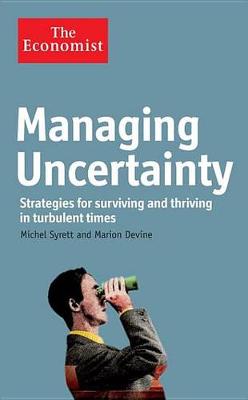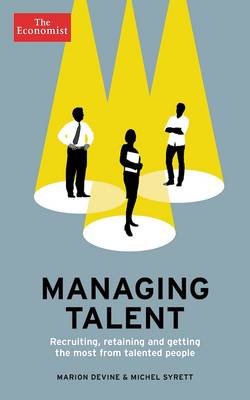Economist
2 total works
Managing uncertainty has become a new business imperative. Technological discontinuities, regulatory upheavals, geopolitical shocks, abrupt shifts in consumer tastes or behavior, and many other factors have emerged or intensified in recent years and together conspire to undermine even the most carefully constructed business strategies. Managing Uncertainty: Strategies for Surviving and Thriving in Turbulent Times addresses these new challenges, assessing the sources of business turbulence, how to classify uncertainty, and the different ways in which uncertainty can be embraced to allow greater innovation and growth.
Drawing on examples from around the world, the book presents the most recent ideas on what it means to manage uncertainty, from practitioners, academics, and consultants.
Addresses the challenges of managing uncertainty in business
Presents a step-by-step guide to managing business uncertainty
Draws examples from major international companies, including Intel, Procter & Gamble, Siemens, Boeing, Quinetiq, Philips, China Telecom, Ford, Apple, Shell, Glaxo SmithKline and many more
Written for business leaders and managers looking for new ways to ensure that their businesses continue to thrive in a world of increasing complexity, Managing Uncertainty presents new and innovative ideas about reducing risk by understanding difficult-to-predict shifts.
Survey after survey confirms how the success of businesses has become increasingly dependent on the ability and skills of their staff. And because talented workers are in short supply, the hunt for people of unusual ability will continue in earnest. Hiring such people is the relatively easy part; what really matters is to keep them engaged so that they don't move on, and to get the best out of them while they work for you.
Drawing on original research, including interviews with senior executives in human resources, recruiters and headhunters, and people considered "talented" within their organizations, this book outlines the way in which companies such as Ford, Goldman Sachs, Cisco, Diageo, Tesco, General Electric and HSBC are facing the challenge of recruiting and developing the talent they need.
This book will also boost readers' own career prospects with practical ideas on how to change their organization's perception of their potential.
Drawing on original research, including interviews with senior executives in human resources, recruiters and headhunters, and people considered "talented" within their organizations, this book outlines the way in which companies such as Ford, Goldman Sachs, Cisco, Diageo, Tesco, General Electric and HSBC are facing the challenge of recruiting and developing the talent they need.
This book will also boost readers' own career prospects with practical ideas on how to change their organization's perception of their potential.

